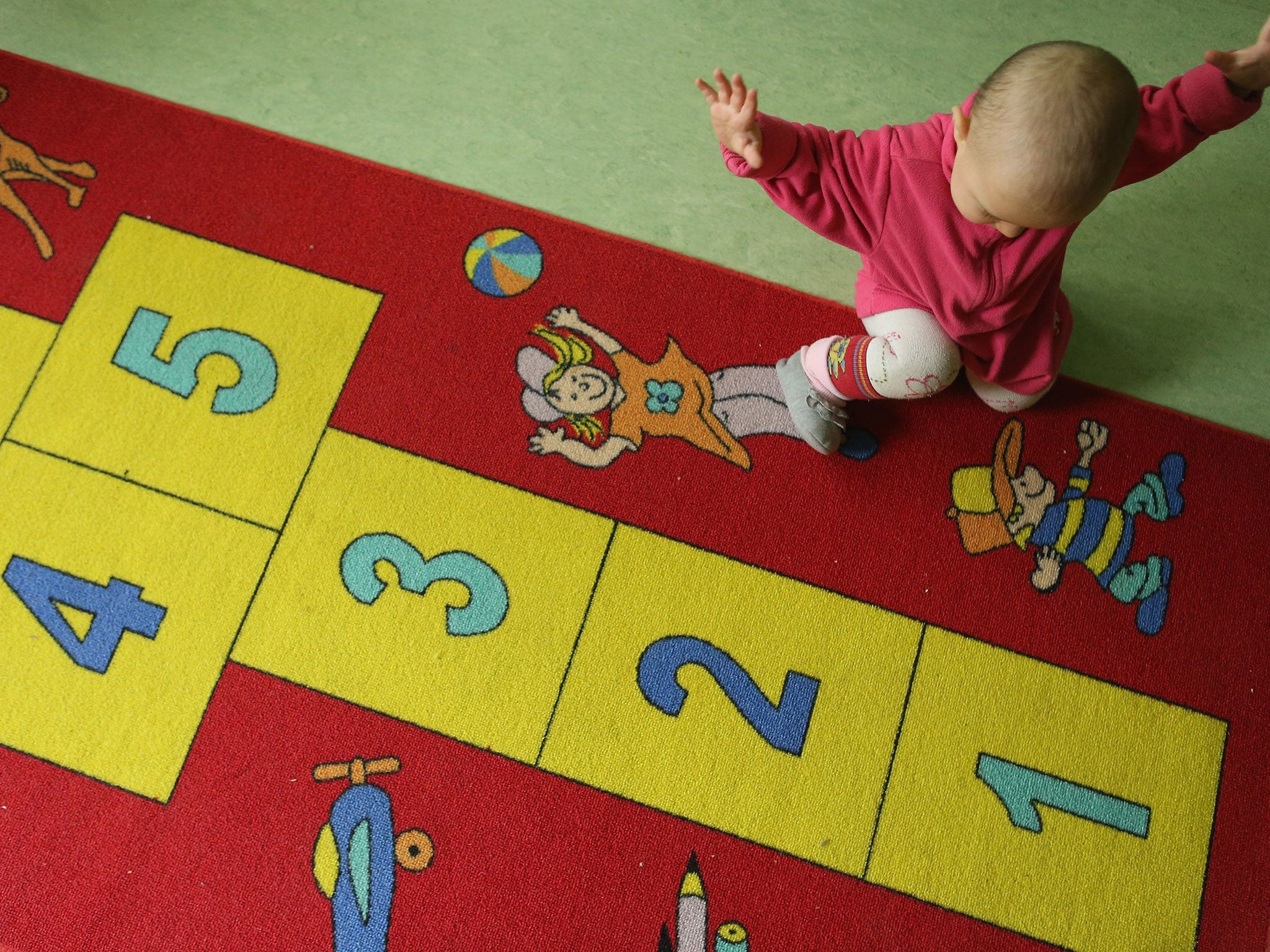Iain Duncan Smith blocks plan for childcare tax breaks in Budget
In a blow to Nick Clegg, Work and Pensions Secretary resists measure, compelling Osborne to renege on pledge to assist squeezed middle

George Osborne's plans to use the Budget to unveil childcare tax breaks for hard-pressed families have been blocked by Iain Duncan Smith in a major Cabinet row over funding, it emerged last night.
Parents struggling with rising childcare costs were to be given allowances of up to £1,000 in one of the coalition's flagship proposals to help the "squeezed middle". Yet the measures, already delayed from January, have been shelved after an 11th-hour intervention from the Work and Pensions Secretary, whose departmental budget would have been used to help fund the scheme. The hold-up is a significant blow to Nick Clegg, the Deputy Prime Minister, who had made it a personal mission to help low to middle-income parents with the cost of childcare.
The row leaves a gaping hole in Mr Osborne's Budget, which he will deliver on Wednesday amid deepening concern across all parties and business that his austerity strategy is harming Britain's economic future. Growth figures are expected to be weaker than forecast and, besides rising employment, there is little sign that the economy is turning around.
In an announcement designed to rebut claims he is doing nothing to boost economic growth, Mr Osborne will unveil significant funding for British industry, targeting the motor, aerospace, agricultural and scientific sectors with cash. The move is a major victory for Vince Cable, the Business Secretary, who has been pushing for an industrial strategy for nearly two years.
The Chancellor was enthusiastic about the childcare allowance plan because he believed it would have allowed up to a million women "missing" from the workforce to return to their jobs, helping the economy.
David Cameron and Mr Clegg were due to announce the childcare package as the latest part of their "mid-term review" on Tuesday. It is believed that the £1,000 tax allowances would have been available to all parents earning up to £150,000, but families who currently qualify for tax credits would have been exempt. Mr Clegg was pushing for a separate package of support for those on tax credits, which would have come under the new universal credit system coming into force later this year – therefore affecting Mr Duncan Smith's DWP budget, which is already facing huge cuts.
Last Wednesday, it is understood, Mr Duncan Smith insisted he was not going to risk the universal credit legislation on the childcare plan.
It emerged yesterday that a handful of Tories have expressed concern at the axeing of the 50p top rate of tax in last year's Budget. At the ConservativeHome Victory 2015 rally a week ago, the MP Jesse Norman, an ally of Mr Osborne, said the party might have "thought twice" about the cut. At a closed session at the conference, Mr Norman said: "If people are building up a worry or presumption about Conservatives being unfair, then any data you add that allows them to form that theory is going to be extremely dangerous. In retrospect, we would have thought twice about whether we cut it. And I think we would also have thought twice about it for economic reasons, because the effect of a reduction in any tax is not just a static one. It's the signal it gives people as to what they can do."
Nadhim Zahawi, another Tory MP from the 2010 intake who is also an ally of the Chancellor, told the same meeting: "The problem is the collateral damage on that question: are you there for the whole nation? Was that the right move to make?"
Tory MEP Martin Callanan, the leader of the Conservatives in the European Parliament, went further by saying that cutting the 50p tax rate was "one of the biggest mistakes that we've made so far in this parliament" and that "politically it was disastrous to do so in a recession".
A ComRes poll for The IoS published today finds the British public does not trust either the Tories or Labour to make the right decisions about the economy. Economic trust in Mr Cameron and Mr Osborne has fallen to the lowest-ever net score (-33), on a par with Ed Miliband and Ed Balls, who remain on -35.
Join our commenting forum
Join thought-provoking conversations, follow other Independent readers and see their replies
Comments